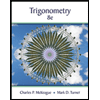sleep = 3,840.83 - .163 totwrk- 11.71 educ -8.70age (235.11) (.018) (5.86) (11.21) + .128 age 2 + 87.75 male (.134) (34.33) n = 706, R2 = .123, R2 = .117. The variable sleep is total minutes per week spent sleeping at night, totwrk is total weekly minutes spent working, educ and age are measured in years, and male is a gender dummy. (i) All other factors being equal, is there evidence that men sleep more than women? How strong is the evidence? (ii) Is there a statistically significant tradeoff between working and sleeping? What is the estimated tradeoff? (iii) What other regression do you need to run to test the null hypothesis that, holding other factors fixed, age has no effect on sleeping?
sleep = 3,840.83 - .163 totwrk- 11.71 educ -8.70age (235.11) (.018) (5.86) (11.21) + .128 age 2 + 87.75 male (.134) (34.33) n = 706, R2 = .123, R2 = .117. The variable sleep is total minutes per week spent sleeping at night, totwrk is total weekly minutes spent working, educ and age are measured in years, and male is a gender dummy. (i) All other factors being equal, is there evidence that men sleep more than women? How strong is the evidence? (ii) Is there a statistically significant tradeoff between working and sleeping? What is the estimated tradeoff? (iii) What other regression do you need to run to test the null hypothesis that, holding other factors fixed, age has no effect on sleeping?
Algebra: Structure And Method, Book 1
(REV)00th Edition
ISBN:9780395977224
Author:Richard G. Brown, Mary P. Dolciani, Robert H. Sorgenfrey, William L. Cole
Publisher:Richard G. Brown, Mary P. Dolciani, Robert H. Sorgenfrey, William L. Cole
Chapter7: Applying Fractions
Section7.1: Ratios
Problem 25WE
Related questions
Question
Hn. Don't provide handwriting solution

Transcribed Image Text:sleep = 3,840.83 - .163 totwrk- 11.71 educ -8.70age (235.11) (.018) (5.86) (11.21) + .128 age 2 + 87.75 male
(.134) (34.33) n = 706, R2 = .123, R2 = .117. The variable sleep is total minutes per week spent sleeping at night, totwrk is total
weekly minutes spent working, educ and age are measured in years, and male is a gender dummy. (i) All other factors being equal, is
there evidence that men sleep more than women? How strong is the evidence? (ii) Is there a statistically significant tradeoff between
working and sleeping? What is the estimated tradeoff? (iii) What other regression do you need to run to test the null hypothesis that,
holding other factors fixed, age has no effect on sleeping?
Expert Solution
This question has been solved!
Explore an expertly crafted, step-by-step solution for a thorough understanding of key concepts.
Step by step
Solved in 2 steps

Recommended textbooks for you

Algebra: Structure And Method, Book 1
Algebra
ISBN:
9780395977224
Author:
Richard G. Brown, Mary P. Dolciani, Robert H. Sorgenfrey, William L. Cole
Publisher:
McDougal Littell

Holt Mcdougal Larson Pre-algebra: Student Edition…
Algebra
ISBN:
9780547587776
Author:
HOLT MCDOUGAL
Publisher:
HOLT MCDOUGAL

College Algebra (MindTap Course List)
Algebra
ISBN:
9781305652231
Author:
R. David Gustafson, Jeff Hughes
Publisher:
Cengage Learning

Algebra: Structure And Method, Book 1
Algebra
ISBN:
9780395977224
Author:
Richard G. Brown, Mary P. Dolciani, Robert H. Sorgenfrey, William L. Cole
Publisher:
McDougal Littell

Holt Mcdougal Larson Pre-algebra: Student Edition…
Algebra
ISBN:
9780547587776
Author:
HOLT MCDOUGAL
Publisher:
HOLT MCDOUGAL

College Algebra (MindTap Course List)
Algebra
ISBN:
9781305652231
Author:
R. David Gustafson, Jeff Hughes
Publisher:
Cengage Learning

Elementary Algebra
Algebra
ISBN:
9780998625713
Author:
Lynn Marecek, MaryAnne Anthony-Smith
Publisher:
OpenStax - Rice University

Intermediate Algebra
Algebra
ISBN:
9781285195728
Author:
Jerome E. Kaufmann, Karen L. Schwitters
Publisher:
Cengage Learning

Trigonometry (MindTap Course List)
Trigonometry
ISBN:
9781305652224
Author:
Charles P. McKeague, Mark D. Turner
Publisher:
Cengage Learning